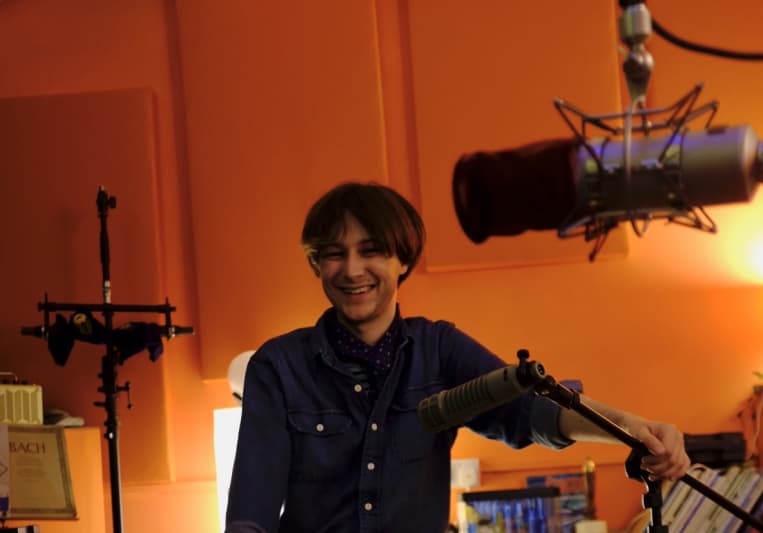
Performance focused producer, engineer and mixer based working out of Knockwood Studios in central Edinburgh. • Ba(Hons) in Sound Production, • 5 years of analog studio experience including working with top Scottish producers. • Co-Owner of Knockwood Studios.
Hey, I’m Jolon. I’m a producer, engineer, mixer and songwriter. I have been working in professional studios for the last 4 years. In that time I have worked on a variety of great projects with many different talented people, I have also graduated with a BA(Hons) in Audio Production.
I have now opened my own studio, Knockwood, with my good friend and frequent collaborator Duncan Jones.
My approach to music making is focused on capturing an honest performance. I put emphasis on the tracking stage of the production, working closely with the artist to refine the arrangement to pull the best out of their song.
I have studied the traditional recording techniques of microphone placement, room acoustics and arrangement. I believe that having this knowledge allows me and the artists I work with to explore and experiment freely.
Tell me about your project and how I can help, through the 'Contact' button above.
Credits
Languages
- English
1 Reviews
Endorse Jolon Yeoman
I was the Recording Engineer, Mixing Engineer, Mastering Engineer & Co-Producer in this production
- ProducerContact for pricing
- Bass ElectricContact for pricing
- Podcast Editing & MasteringContact for pricing
- Vocal compingContact for pricing
Standard Rate
•£200 per day
•£100 per half day
- Jack Antonoff
- Father John Misty
- Weyes Blood
- Neumann U87ai
- Flea 47 (U47)
- Coles 4038 pair
- B&O BM5
- UA6176
- AEA RPQ2 Pair
- Mellotron
- Juno 60
- Moog Matriarch
- Yamaha C108
- Hammond B300
- Höhner Pianet T
- Fender Jazzmaster
- Jazz Chorus 120



